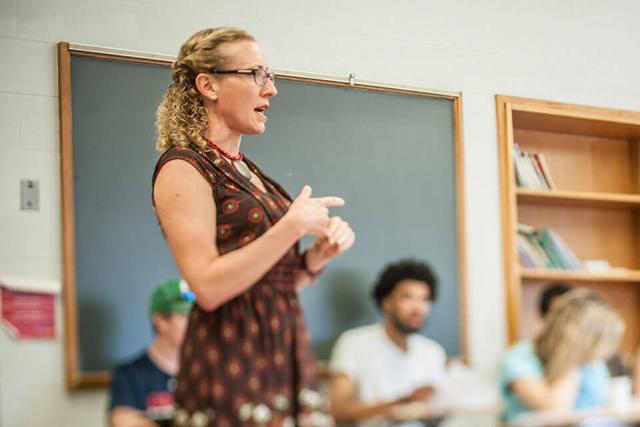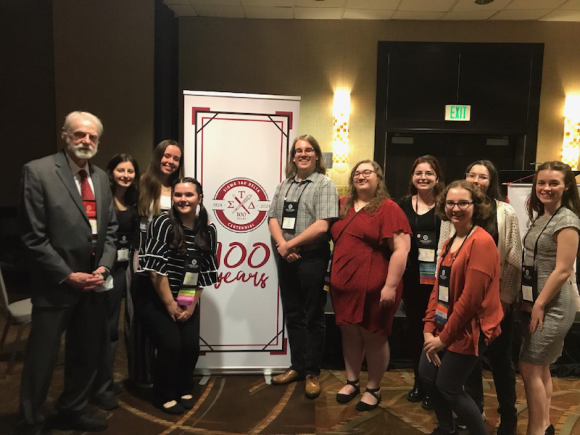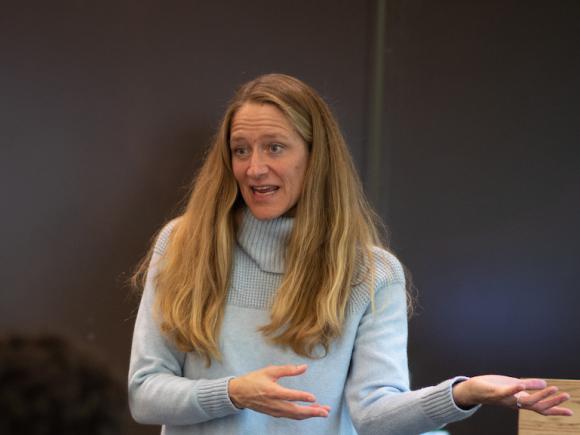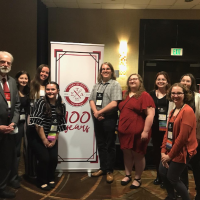
As an English major at Westfield State University, you’ll go beyond what’s on the page and engage in ideas about language, literature, and culture. Read the latest publications, learn from professors sharing their current research, and engage in conversations about writing and reading in today’s world. Our B.A. in English places a high value on social justice — encouraging you to listen to new perspectives and explore how writing and critical reading can be a form of activism.
You’ll also build and explore your writing craft in a supportive community. Small class sizes mean you will grow and perfect your skills in a meaningful writing workshop format while also gaining practice giving and receiving constructive criticism.
You’ll transform what you discover in the classroom and put it into practice in your career. Test out career possibilities, develop your portfolio and professional skills, and build your resume in career-preparation courses and workshops.
Available Concentrations:
Literature
Learn how to recognize, evaluate, and articulate human values, motives, and qualities through rigorous analysis of a diverse collection of major literary works in the English literature degree concentration. You’ll build a strong foundation in literary history and genre with opportunities to specialize in areas like the American Novel, Satire, Narrative Medicine, Literature and Film, Caribbean Literature, and more.
Writing
Develop your talents in all styles of writing: creative, professional, journalistic, and academic writing. You’ll master a wide variety of flexible skills so you can use your writing abilities to great effect in a wide variety of settings. Plus, you’ll have plenty of opportunities to publish as an undergraduate as well as share your work at public readings.
English Teacher Licensure (grades 5-12)
With an English teaching degree concentration, you can share your passion for reading and writing with the next generation. You’ll develop your expertise in literature study, writing practices, and engaging in critical dialogue. You’ll also gain extensive experience in creative preparation and teaching practices that will invigorate your students and classroom. Plus, you will establish an understanding of and commitment to anti-bias/anti-racist pedagogy to help address inequalities in schools.

















